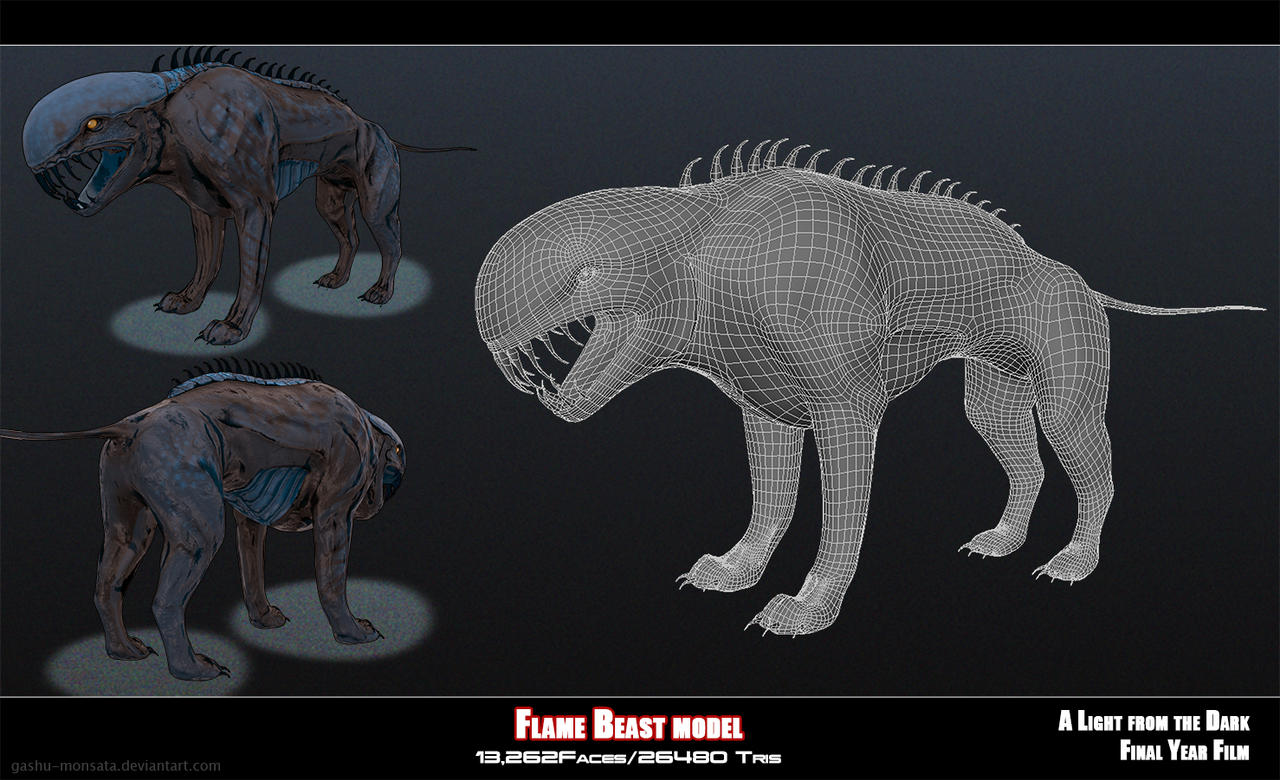The BRAWL² Tournament Challenge has been announced!
It starts May 12, and ends Oct 17. Let's see what you got!
https://polycount.com/discussion/237047/the-brawl²-tournament
It starts May 12, and ends Oct 17. Let's see what you got!
https://polycount.com/discussion/237047/the-brawl²-tournament
Topology Practice
Whoooah Nelly! First time posting in this thread  I've been practising with retopologising- usually, I just leave my models in the sculpting stage but I have begun to like the idea of taking my models further.
I've been practising with retopologising- usually, I just leave my models in the sculpting stage but I have begun to like the idea of taking my models further.
Here are two of them:
Ellie from the Last of Us. My first human model I think, some damn crazy topology going on here. I think I mostly get stuck on that part between the legs?

A creature I modelled for a film back when I was at Uni earlier this year, tried to model around the muscles. A bit of a waste of time since the creature was smothered in smoke in post but hey haha:

Oh! And whilst I'm at it, I suppose I may as well ask... does anyone know of a good technique for creating eyelashes? Ellie's eyelashes really sucked on this model, I just couldn't get them looking nice and full.
Here are two of them:
Ellie from the Last of Us. My first human model I think, some damn crazy topology going on here. I think I mostly get stuck on that part between the legs?

A creature I modelled for a film back when I was at Uni earlier this year, tried to model around the muscles. A bit of a waste of time since the creature was smothered in smoke in post but hey haha:

Oh! And whilst I'm at it, I suppose I may as well ask... does anyone know of a good technique for creating eyelashes? Ellie's eyelashes really sucked on this model, I just couldn't get them looking nice and full.

Replies
The edge flow on the creature is quite messy. Clean distribution, but you could eliminate a lot of those poles, and your have few unnecessarily dense areas here and there. Especially on its paws.
Overall, you seem to know a way around creating good topology, but I suggest to think with the silhouette to have an optimized polycount. As we are living in 2014, these aren't too high though.
For the eyelashes, in Blender (which is my main 3D application, and this trick probably doesn't translate to Max or Maya (or Modo) so straightforwardly), I duplicate the edge loop around the retopologized eyes of the LP mesh where eyelashes would most likely sit naturally, and separate it to a new object. Now I can extrude the edge loop to polygons and manually shape it to the shape of the eyelashes. Then I'll add more edgeloops for curved shapes if needed.
Pretty much like this way:
https://www.youtube.com/watch?v=AMnJE4sgZ_U
And when I retopologize my models, I usually take care of that loop to fit it there for that purpose.
With the eye lashes, I did that but when I applied the alpha, the eyelashes appeared very thin no matter how dense I tried to make the alpha. I would assume that I could have multiple layers of eyelashes instead of one?